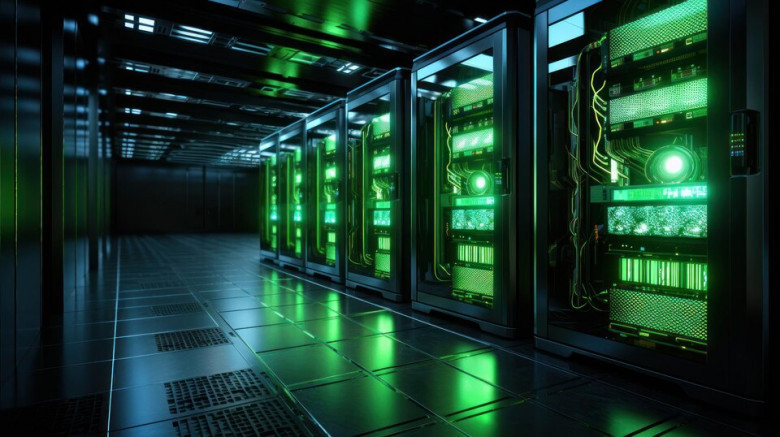views

In a digital age where data is the new gold, how you store, manage, and access your valuable information can make all the difference. That's where Network Attached Storage (NAS) appliances come in. These powerful devices can transform how you handle your data, whether you're a small business owner, a tech enthusiast, or someone simply looking to boost their home media setup.
This blog post will guide you on a comprehensive tour of NAS appliances. We'll explore their features, benefits, and why they are an essential component of modern data management. By the end of this article, you'll have a clear understanding of how NAS can fit into and enhance your daily operations.
What Are NAS Appliances?
NAS appliances are specialized devices designed to store and share data across a network. Unlike traditional storage solutions like external hard drives, NAS appliance devices are connected to your local network, allowing multiple users to access and manage files simultaneously.
A typical NAS device houses one or more hard drives, providing ample storage space. It's like having your own personal cloud storage, but with more control and security. NAS appliances are versatile and can serve a variety of functions, from simple file storage to more complex applications like media streaming and data backup.
The key advantage of NAS appliances is their ability to centralize data storage. This means you no longer have to worry about scattered files across multiple devices. Everything is stored in one place, making it easier to organize, access, and protect your data.
Key Features of NAS Appliances
Modern NAS appliances come packed with features that cater to various needs. Let's take a closer look at some of the most notable ones:
Easy Setup and Management
Gone are the days when setting up a storage solution required extensive technical knowledge. Most NAS devices come with user-friendly interfaces that simplify the setup process. You can easily configure your NAS device, set up user accounts, and manage your data through an intuitive web interface.
Scalability
One of the standout features of NAS appliances is their scalability. Whether you need a few terabytes of storage or several petabytes, NAS devices can grow with your needs. Many NAS models allow you to add additional hard drives or even connect multiple NAS units together.
Data Redundancy and Backup
Data loss can be catastrophic, especially for businesses. NAS appliances often come with RAID (Redundant Array of Independent Disks) configurations. RAID ensures data redundancy by storing copies of your data across multiple hard drives. In case one drive fails, your data remains intact.
Remote Access
With a NAS device, you can access your data from anywhere in the world. Most NAS appliances offer built-in remote access features, allowing you to retrieve files, stream media, or manage your device on the go. This is particularly useful for business owners who need to access critical documents while traveling.
Benefits of Using NAS Appliances
The benefits of integrating a NAS appliance into your home or office setup are numerous. Here are some of the key advantages:
Centralized Data Management
By centralizing your data storage, NAS appliances eliminate the chaos of scattered files. This not only helps in better organization but also makes it easier to collaborate and share files with others. Whether it's family photos or business documents, everything is stored in one secure location.
Enhanced Security
Security is a top priority when it comes to data storage. NAS appliances offer various security features, including encryption, user access controls, and automatic backups. These features ensure that your data is protected from unauthorized access and potential data loss.
Cost-Effective Solution
Investing in a NAS appliance can save you money in the long run. Instead of paying for expensive cloud storage subscriptions, you have complete control over your storage solution. Additionally, the scalability of NAS devices means you can expand your storage capacity without replacing the entire system.
NAS Appliances for Different Needs
NAS appliances are highly versatile and can be tailored to fit different needs. Whether you're a home user, a small business owner, or a tech enthusiast, there's a NAS solution for you.
Home Users
For home users, NAS appliances offer a convenient way to store and share media files. You can use your NAS device to stream movies, music, and photos to various devices around your home. Additionally, NAS appliances provide a secure backup solution for important files and family memories.
Small Businesses
Small businesses can benefit greatly from NAS appliances. They provide a cost-effective solution for data storage, file sharing, and collaboration. With features like data redundancy and remote access, businesses can ensure their data is always available and protected.
Tech Enthusiasts
Tech enthusiasts will appreciate the advanced features and customization options available with NAS appliances. From running virtual machines to hosting websites, NAS devices offer a wide range of possibilities for those looking to expand their technical skills.
How to Choose the Right NAS Appliance?
Selecting the right NAS appliance can be overwhelming, given the variety of options available. Here are some factors to consider when making your decision:
Storage Capacity
Determine how much storage you need based on your current and future requirements. Consider opting for a NAS device that offers expandability to accommodate your growing data needs.
Number of Bays
NAS devices come with varying numbers of drive bays. More bays mean more storage capacity and better data redundancy options. Choose a NAS appliance with enough bays to meet your needs.
Performance
Consider the performance specifications of the NAS appliance, such as the processor, RAM, and network connectivity. Higher performance devices are better suited for demanding tasks like media streaming and virtualization.
Setting Up Your NAS Appliance
Setting up a NAS appliance is a straightforward process, thanks to user-friendly interfaces and setup wizards. Here's a step-by-step guide to get you started:
Step 1: Install the Hard Drives
Begin by installing the hard drives into the NAS device. Follow the manufacturer's instructions for proper installation and configuration.
Step 2: Connect to the Network
Connect the NAS appliance to your local network using an Ethernet cable. Ensure that the device is powered on and connected to your router or switch.
Step 3: Access the Web Interface
Open a web browser and enter the IP address of your NAS device. This will take you to the web interface, where you can configure your device settings.
Configuring Your NAS Appliance
Once you have accessed the web interface, it's time to configure your NAS appliance to suit your needs. Here are some essential settings to configure:
Create User Accounts
Set up user accounts for different members of your household or team. This allows each user to have their own private storage space and access permissions.
Set Up Shared Folders
Create shared folders for easy file sharing and collaboration. Assign permissions to control who can access and modify the files within each folder.
Configure Backup Options
Set up automatic backups to ensure your data is always protected. You can configure backups to run on a schedule or trigger them manually as needed.
Maximizing the Use of Your NAS Appliance
To get the most out of your NAS appliance, explore some of the advanced features and applications available:
Media Streaming
Many NAS appliances come with built-in media servers that allow you to stream music, movies, and photos to various devices. Set up media streaming to enjoy your favorite content on smart TVs, tablets, and smartphones.
Virtualization
Advanced NAS devices support virtualization, allowing you to run virtual machines directly on the NAS appliance. This is useful for testing software, running isolated environments, and hosting applications.
Cloud Sync
Integrate your NAS appliance with cloud storage services for added flexibility. This allows you to sync your data between your NAS device and cloud storage, ensuring you always have access to your files.
The Future of NAS Appliances
The future of NAS appliances looks promising, with continuous advancements in technology driving new features and capabilities. Here are some trends to watch out for:
AI and Machine Learning
AI and machine learning are expected to play a significant role in the evolution of NAS appliances. These technologies can enhance data management, automate tasks, and improve overall performance.
Increased Connectivity
With the rise of smart homes and IoT devices, NAS appliances will become more interconnected. This will enable seamless integration with various devices and services, further enhancing the user experience.
Enhanced Security
Security will continue to be a top priority, with affordable NAS storage manufacturers implementing advanced encryption methods, multi factor authentication, and other security measures to protect user data.
Conclusion
NAS appliances are a powerful tool for managing, storing, and accessing data. Whether you're a home user looking to streamline your media collection, a small business owner seeking a cost-effective storage solution, or a tech enthusiast exploring advanced features, NAS appliances have something to offer.
By understanding the features, benefits, and best practices for using NAS appliances, you can make an informed decision and maximize the value of your investment. If you're considering a NAS appliance for your home or office, now is the perfect time to explore the options available and take the first step towards a more organized and efficient data management solution.











